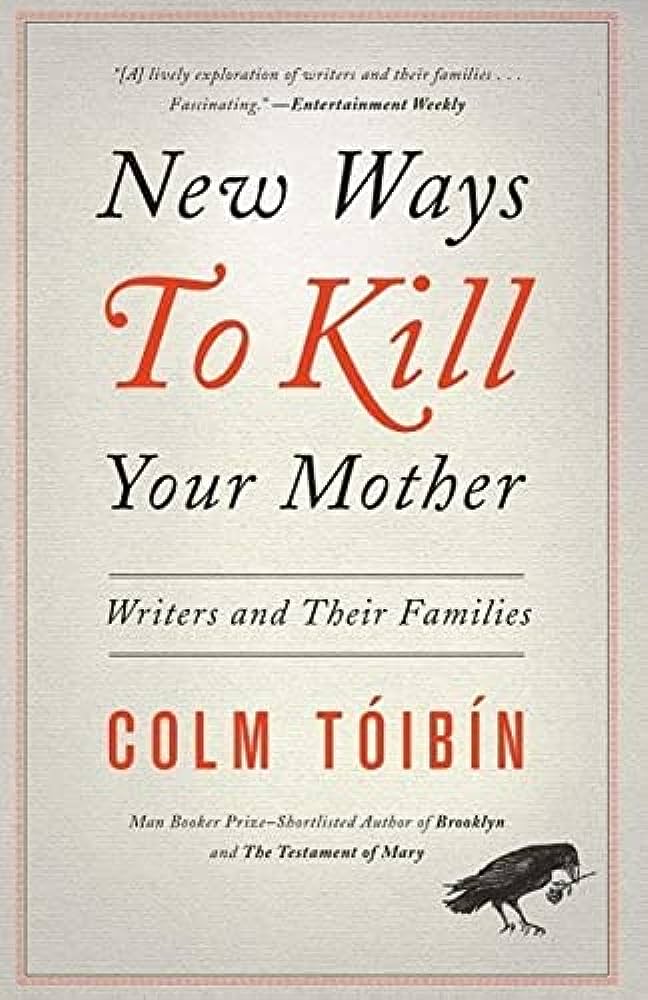
Staff Pick: New Ways to Kill Your Mother
A friend recently said of my Goodreads profile, “You read the most uninteresting things.” For this book review, I was driven to choose something more interesting, so I studied my “read-soon” pile and was drawn to my autographed copy of New Ways to Kill Your Mother: Writers and Their Families by Colm Tóibín.

Years ago, I read Brooklyn by Tóibín. The main character’s teetering between two lives and difficult adult decisions resonated—hard—with my twenty-three-year-old self. A few chapters into New Ways, I wondered if this was the best book for me to choose because I’d only read from three of the 14 authors highlighted. While focused on Irish nationalism, and not, to my surprise, about various ways one might kill their mother, this is a fantastic dive into how family and personal circumstances influence the lives and stories of an assortment of writers.
Mothers in Jane Austen’s fiction are absent because, otherwise, they’d take up space better filled by the growth of personality. In the politically jarring, privileged life of Jorge Luis Borges, we learn that Borges was an obedient son who would tell his mother what he had done that day and receive two sweets from her before bed all of his life. Fathers in Sebastian Barry’s fiction are static villains, “living in a dream of the past,” with no moments of redemption or reconciliation.
James Baldwin stands out; Baldwin compares his writing style to Miles Davis and Ray Charles. Perhaps it is the absence of family, even in anecdotes, that makes Baldwin’s societal critique more impactful, leaving a legacy that helps us understand an eventual political climate “that even [Baldwin] could not have imagined.”
What makes up our individuality? What are the benefits and misgivings attached to having roots? Tóibín explores how authors can only attempt to leave Ireland, America, and their families from many, but ultimately literary, perspectives. As someone who has moved around a bit, I feel these are themes worth returning to.

